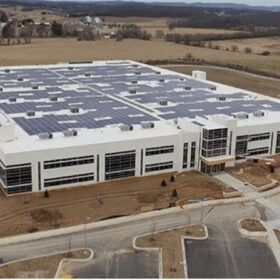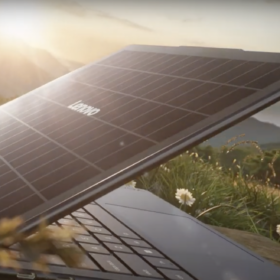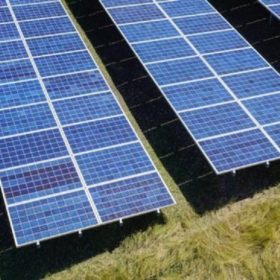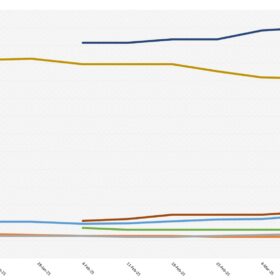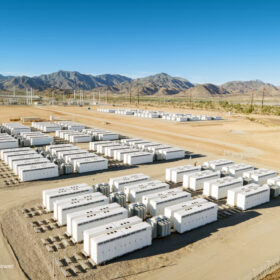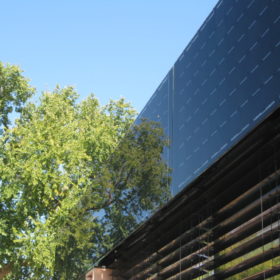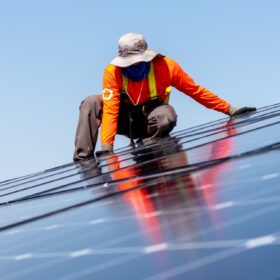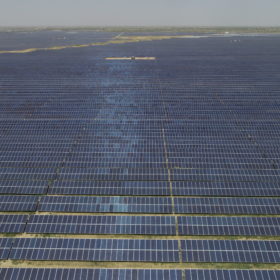C&I solar grows 18% in the United States in 2024
Distributed solar fell 11% in 2024, dragged down by the residential segment, according to Ohm Analytics’s report on the fourth quarter of 2024. However, signs of recovery emerged with a strong fourth quarter and increasing installation volumes throughout the year.
Lenovo unveils solar laptop with integrated PV panel
This is a proof-of-concept 1.22 kg laptop with a solar panel integrated into the lid, capable of absorbing enough sunlight in 20 minutes to power the device’s video for an hour.
In India, ISTS connected green open access market to add 40 GW capacity by 2030
The Inter-State Transmission System (ISTS) could achieve a green open access (OA) capacity of around 40 GW by 2030, provided that transmission bottlenecks are resolved, and no other significant obstacles emerge. This will represent approximately one-third of green OA capacity in India by 2030.
The role of solar in India’s 500 GW renewable energy target by 2030
As of Feb. 28, 2025, India’s installed solar capacity stands at approximately 102.57 GW, contributing significantly to its renewable energy mix. To meet the 500 GW target, solar energy will need to contribute nearly 300 GW.
Harnessing India’s rooftop solar potential: A crucial step towards achieving 600 GW clean energy target by 2030
For India to achieve its 600 GW clean energy goal, rooftop solar must become a national priority. By learning from global success stories, addressing financial barriers, and implementing robust policies, India can unlock the full potential of decentralised solar energy.
Global module prices trend upward in Q2
In a new weekly update for pv magazine, OPIS, a Dow Jones company, provides a quick look at the main price trends in the global PV industry.
How advanced battery technologies are transforming solar energy storage
The energy storage market is rapidly evolving with cutting-edge battery technologies leading the way. Ongoing advancements are improving lithium batteries’ safety and longevity, further solidifying their position as the preferred choice for solar energy storage systems. Other promising developments are solid-state batteries, flow batteries, and sodium-ion batteries.
Turning climate commitments into competitive advantages: How businesses can benefit from sustainability
The best businesses aren’t just adapting to the changing landscape; they’re leveraging sustainability to drive innovation, reduce costs, and build stronger relationships with their customers and stakeholders. Business leaders are turning sustainability into a growth driver rather than a cost center by adopting the right practices.
Successful solar companies sell more than solar
The move toward electrifying everything is a business opportunity, and many residential solar companies have been creative in adding solar to places other than home rooftops
CERC adopts tariff for SECI’s 1.2 GW ISTS-connected solar PV power projects with energy storage systems
The tariff adoption by Central Electricity Regulatory Commission (CERC) is a critical regulatory requirement under the Electricity Act and power purchase agreements. It provides regulatory certainty to the entire bidding process and ensures the sanctity of the discovered tariff, paving the way for the successful bidders to proceed with project execution and financial closure.
